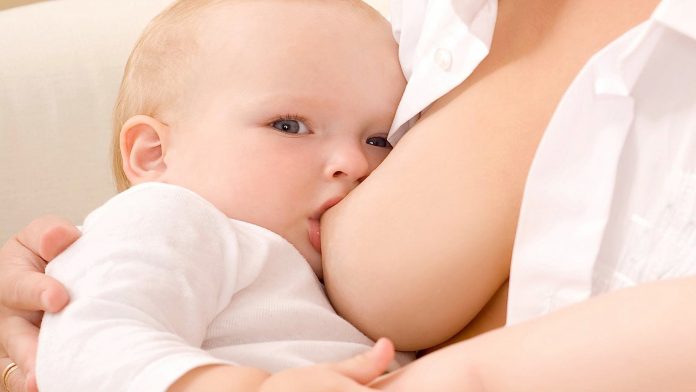Obese women are less likely to breastfeed according to a review of 20 research papers by health psychologists and midwives from The University of Manchester.
PhD student and trainee health psychologist Stephanie Lyons from The University of Manchester says women with a Body Mass Index of over 30kg/m2 – the medical definition for obesity- are also more likely breastfeed for shorter durations than other women.
The review identified psychological factors which can hold back these women from breastfeeding their babies. The women tend to have social networks where friends and family members do not breastfed their babies.
The research team also hope measures to encourage women to breastfeed may help tackle rising obesity rates in children as non-breastfeeding mothers are more likely to have obese children.
The research was funded by the Economic and Social Research Council , as part of Stephanie Lyons’ PhD programme.
Factors holding obese women back from breastfeeding included: lack of breastfeed planning, low belief in breastmilk’s nutritional adequacy and sufficiency, poor body image and lack of social knowledge.
The fifth factor highlighted a belief that close friends or family members preferred them not to breastfeed.
The team recommend that clinicians should proactively support medically obese women to breastfeed by providing accurate information and practical advice for latching and positioning.
And women, they add, should be signposted to breastfeeding support groups to receive advice from peers and be in social situations with other breastfeeding mothers.
Stephanie Lyons said: “Breastfeeding is associated with many health benefits for both mother and child and can play a key role in the reduction of long term obesity for mothers and prevention of obesity in children.
“The World Health Organisation recommends all mothers should exclusively breastfeed their infants until they reach six months of age, and continue with complementary breastfeeding until they are at-least two years of age.
“But medically obese women are less likely to breastfeed- and they will be held back by a number of psychological factors.”
She added: “Our results suggest having poor body image and lacking belief in breastmilk’s nutritional adequacy and sufficiency may create barriers to breastfeeding.
“Many of the women with higher BMIs had poorer body image, and lacked belief in their breastmilk’s nutritional adequacy and sufficiency.
“We therefore urge, clinicians and associated professionals to proactively work with women with a BMI of 30kg/m2 or more to encourage, educate and support them.”







